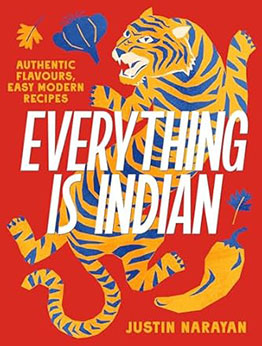![Food for Thought by Justin Amery [PDF: 9781785230271]](https://cookebooks.info/wp-content/uploads/2022/05/9781785230271.jpg)
- Title: Food for Thought: The Integrated Practitioner
- Author: Justin Amery
- Pages: 176
- Publisher (Publication Date): CRC Press; 1st edition (October 20, 2013)
- Language: English
- ISBN-10, ISBN-13 or ASIN: 9781785230271
- Download File Format:PDF
Everything that exists, exists against a background. All of our experiences, beliefs and understandings of health practice derive from a living, organic and constantly moving context: whether scientific, philosophical, cultural, aesthetic, biological or spiritual. It is useful therefore to spend a little time understanding and reflecting on these building blocks of who we are. As practitioners, we don’t always have time to do this…A little luxury…not essential, but hopefully a bit nourishing. Like a fireside cup of cocoa. – Justin Amery This extraordinary new series fills a void in practitioner development and well-being. The books take a reflective step back from the tick-box, target-driven and increasingly regulated world of 21st century health practice; and invite us to revisit what health and health practice actually are. Building carefully on the science and philosophy of health, each book addresses the messy, complex and often chaotic world of real-life health practice and offers an ancient but now almost revolutionary understanding for students and experienced practitioners alike: that health practice is a fundamentally creative and compassionate activity. The series as a whole helps practitioners to redefine and recreate their daily practice in ways that are healthier for both patients and practitioners. The books provide a welcome antidote to demoralisation and burn-out amongst practitioners, reversing cynicism and reviving our feeling of pride in, and our understanding of, health practice. By observing practice life through different lenses, they encourage the development of efficiency, effectiveness and, above all, satisfaction. The fifth book in this series, The Integrated Practitioner: Food for Thought, written for readers who prefer a more academic and reflective understanding of the themes of books 1-4. It incorporates the theoretical background for each of the concepts discussed in the first four workbooks, giving c
![Mama Lotties Vegan Cookbook by Justin Bautista [PDF:9798718349160 ] Mama Lotties Vegan Cookbook by Justin Bautista](https://cookebooks.info/wp-content/uploads/2021/06/9798718349160.jpg)

![Just Cook It!: 145 Built-to-Be-Easy Recipes That Are Totally Delicious by Justin Chapple [0544968832, Format: EPUB] 0544968832](https://cookebooks.info/wp-content/uploads/2018/11/0544968832.jpg)
![Mad Genius Tips by Justin Chapple [EPUB: 0848751630] Mad Genius Tips by Justin Chapple [EPUB: 0848751630]](https://cookebooks.info/wp-content/uploads/2021/12/0848751630.jpg)
![Korean Food Systems by Dong-Hwa Shin [EPUB: 9781003275732] Korean Food Systems by Dong-Hwa Shin [EPUB: 9781003275732]](https://cookebooks.info/wp-content/uploads/2022/07/9781003275732-170x261.jpg)
![Culinary Turn: Aesthetic Practice of Cookery by Nicolaj van der Meulen, Jörg Wiesel [3837630315, Format: PDF] 3837630315](https://cookebooks.info/wp-content/uploads/2019/01/3837630315.jpg)